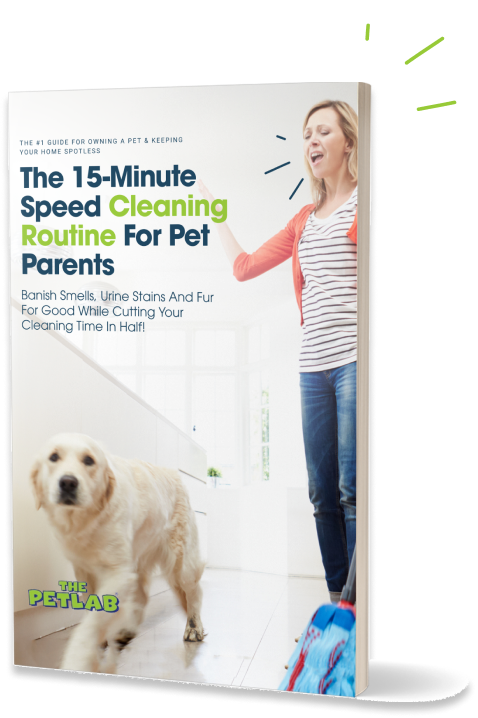Just when you thought you had graduated from puppy potty training, surprise! There’s a puddle of pee or a lump of poo waiting to greet you. 😲
You’re puzzled because you could have sworn your adolescent puppy was fully housebroken. So, what gives? Someone, please help!
Before anything else, let’s define dog potty regression
Puppy potty training regression is when your toilet-trained dog reverts to doing his business in inappropriate places indoors.
Places like your carpet and rugs, kitchen floor, and even your orthopaedic pillow. (True story; it happened to me. 😬)
This relapse is typical for puppies aged 4 to 12 months. And while it may drive you up the wall in frustration, there's good news: It’s temporary!
Why do puppies regress?
Looking back on the time and effort you put into toilet training your dog, “square one” is not where you thought you'd be. Again. Where did all your progress go? Why is your pup soiling the house?
Let us walk you through the most common causes and contributing factors.
1. Developmental changes
As your dog grows from an infant into a young adult, hormonal and physical changes (like teething) can bring about all sorts of unwanted behaviour in your puppy.
Think of the “terrible twos” in kids and teenage rebellion. 😣 Yeah, your pet isn’t immune!
During this period:
- Fido will be an eager little pup but also go through so-called fear periods that lead to bouts of submissive urination whenever anxious, afraid, or even excited.
- Your canine is suddenly preoccupied with other things, often cheeky, and prone to disobey commands—including where to wee!
- Your adolescent will be driven by natural instinct, like claiming territory via urine marking.
Fortunately, this phase will pass. Just stick to your potty training rules.
2. Changes to your routine
Have you made any sudden changes to your potty-training regimen? Things like:
- Less frequent toilet breaks.
- Irregular meal times or changing food quantities.
- Leaving your pet unsupervised and allowing them access to all rooms, anytime.
Schedule changes, unreasonable expectations, and giving your dog too much freedom too soon are surefire routes to regression.
As with all training, housebreaking a dog is a step-by-step process; take it slow but steady.
3. Anxiety
We know that stressful situations can lead to an overactive bowel or bladder. But in some dogs, that can be as drastic as losing control entirely. (Hint: Fido may leave a few landmines here and there, even when fully potty trained!)
In case you were wondering, anxiety-causing scenarios include:
- Marriage/divorce
- A new baby
- New pets
- Moving house
- Prolonged periods alone at home
- A death in the family
You can’t change these occasions, so it comes down to helping your dog adjust as much as possible.
4. Subpar cleaning
Notice your pup relieving himself in the same spots in your home? It could be potty regression—or a sign that you’re not cleaning thoroughly enough.
Promise, we’re not judging! But dogs have super noses and equally potent waste. If Fido can smell any remnant of prior business, then you can bet your bottom dollar he will be back for round two (and three and four).
Until you get rid of all odour-emitting urine and faecal residue, that is.
Unfortunately, standard cleaning products no longer cut it when you have pets. Those only mask odours. They don’t break down and eliminate odour-causing particles.
The only way to do that is with an enzymatic cleaner like PetLab’s E.N. Zyme Stain and Odour Remover.
From potty training your puppy to staying the course: Be ready to always have enzyme-based products on hand!
5. Medical problems
Some medical conditions can lead to your young adult peeing and pooping inside the house. These include (but are not limited to):
- Urinary tract infection
- Kidney disease
- Gastroenteritis (usually caused by infection or toxins)
- Irritable bowel syndrome
- Food allergies
- Lactose intolerance
Rule out health issues by taking your pet to the vet.
6. Fido wasn’t actually housebroken
After a few (inspiring) mess-free days, pet parents party like it's 1999! 🎊 They think they've finally reached the toilet-training finish line… But the reality is we often get ahead of ourselves.
The best test is if your dog can go 2 to 3 months without any toilet mishaps—that’s when Fido is actually potty trained. It's also when you can truly breathe that sigh of relief: SUCCESS! 😮💨


